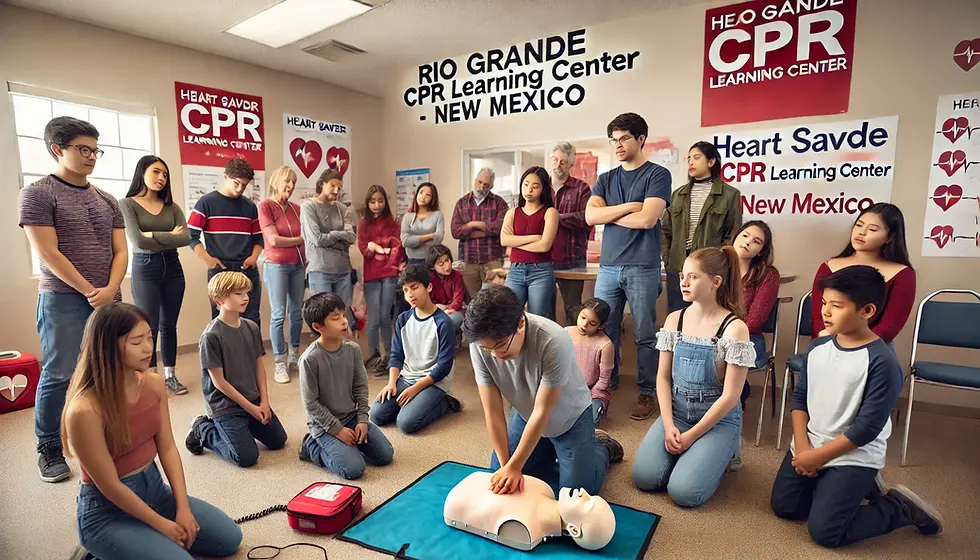Why are Essential First Aid Skills Beyond CPR Important for Everyone to Know?
- America Kelleher
- Mar 28, 2025
- 3 min read
In emergencies, knowing how to perform CPR can be lifesaving, but it’s just one piece of the puzzle. Essential first aid skills go well beyond CPR, covering techniques that can save lives and prevent situations from becoming worse. Everyone should understand these skills, not just those in healthcare. Here’s why this knowledge is vital.
Understanding First Aid
First aid is the immediate help provided to someone who is injured or facing a medical emergency. With proper training, anyone can learn how to perform first aid effectively. These skills are important not just in emergencies but in everyday life, as minor accidents happen frequently. For example, over 30 million injuries occur each year in the U.S., highlighting the need for first aid knowledge.
Common First Aid Scenarios
Emergencies can take many forms. For instance, consider a situation where someone is choking. Knowing how to perform the Heimlich maneuver can potentially save that person’s life. According to the American Heart Association, choking is responsible for about 3,000 deaths annually in the U.S. Similarly, knowing how to manage bleeding can make a big difference. If you can stop blood loss quickly, you could increase a person’s chances of survival.
Recognition of Medical Conditions
Recognizing and responding appropriately to various medical conditions is another vital skill. For instance, stroke is one of the leading causes of death in the U.S., claiming nearly 160,000 lives each year. Being able to identify the signs of a stroke, such as sudden numbness or trouble speaking, can pave the way for critical treatment. Quick recognition can increase a person’s chances of recovery significantly.
Managing Stressful Situations
First aid training also helps people cope with stressful scenarios. Staying calm during a crisis can improve the effectiveness of the first response. For example, research has shown that individuals who practice relaxation techniques can reduce anxiety levels by up to 50%. The focus gained from this training can be critical in ensuring that first aid is administered properly and swiftly.
Importance of First Aid Kits
A well-stocked first aid kit is essential for being prepared in emergencies. Knowing what items to include and how to use them can significantly enhance your first aid skills. A basic kit should contain items like:
Adhesive bandages in various sizes
Sterile gauze and adhesive tape
Antiseptic wipes and antibiotic ointment
Non-prescription pain relievers
Having these items on hand ensures that you are ready to tackle common injuries quickly.
Accessibility of First Aid Training
First aid training has become increasingly accessible. Numerous organizations offer courses covering everything from basic first aid to advanced life-saving techniques. In fact, 68% of Americans are interested in learning first aid skills. Investing time in such training empowers individuals to act effectively during emergencies, making them valuable assets in crisis situations.
The Ripple Effect of Knowledge
When more people are trained in essential first aid skills, entire communities become safer. It goes beyond personal preparedness; it fosters a culture of awareness and responsiveness. Sharing this knowledge with family, friends, and neighbors creates a community better equipped to handle emergencies. Imagine a neighborhood where several residents know how to respond in an emergency—it can make a profound difference.
Final Thoughts
While CPR is an important skill, it represents just one aspect of the broader realm of first aid. Essential first aid skills beyond CPR are crucial for everyone to know, as they can dramatically improve outcomes during emergencies. By investing in first aid training and acquiring these skills, individuals prepare for personal emergencies and contribute to their communities' safety. Embracing this knowledge can lead to a more prepared society, where informed responses save lives.




Comments